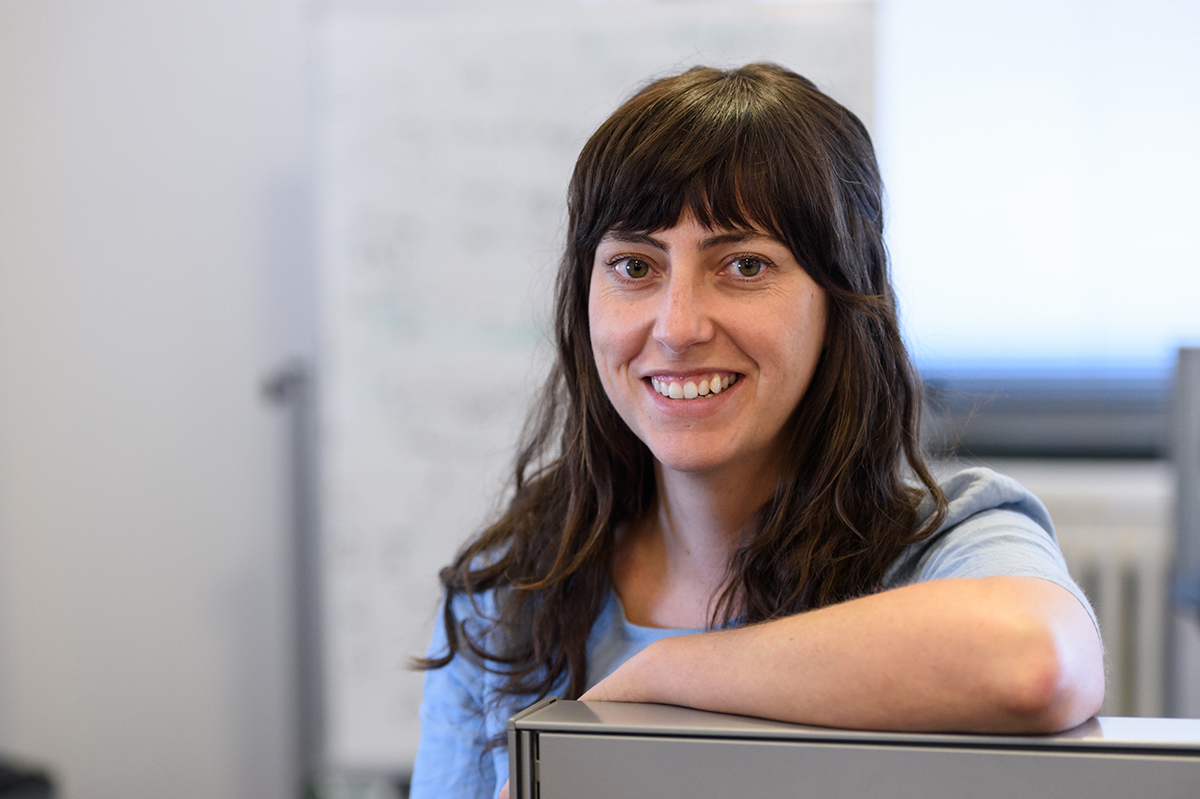
Biotia leverages DNA sequencing technology and proprietary AI-powered software to identify dangerous microorganisms and antimicrobial resistance in hospitals.
The Biotia Story
Dr. Niamh O’Hara, CEO and co-founder of Brooklyn-based biotech startup Biotia, is leveraging genomics, epidemiology, and climate change data to revolutionize the way healthcare functions. Having completed a postdoc in healthtech business at Cornell Tech, a postdoc at Fordham University in Bioinformatics, a PhD in Ecology and Evolutionary Biology at Stony Brook University, and a BA at NYU, O’Hara has worked for years to commercialize Biotia’s next-gen sequencing-based technology for hospitals.
In its earliest stages, Biotia used urine samples to develop a genomics-based approach to diagnosing STIs. And then the pandemic hit. The ubiquitous and complex global impact of COVID-19 encouraged Biotia to develop more comprehensive genomic tracking and cataloging technologies for a variety of diseases. Now, with support from the Rockefeller Foundation, Biotia has launched a platform called GeoSeeq, which utilizes sequencing-based technology and AI-powered software to rapidly and accurately identify microorganisms and antimicrobial resistance. With GeoSeeq, any user may search any DNA/RNA sequence samples uploaded by researchers from across the globe to match similar sequences– previously identified or unidentified– from any region.
Through Biotia’s GeoSeeq platform, researchers and public health professionals will be able to maintain an open and direct line of communication to more effectively forecast burgeoning health threats throughout any region on earth, as well as forecast the ways in which climate change may exacerbate the effects of these diseases.
Biotia is currently a series- A company, with 20 full-time employees mostly based in Brooklyn and Budapest. The GeoSeeq Watchtower System was announced at a recent presentation to the United Nations General Assembly. The group is currently partnering with public health professionals to monitor the spread of Zika, E. Coli, and SARS-CoV-2. As a spinout company of Jacobs Technion-Cornell Institute at Cornell Tech, Biotia has a New York State CLIA lab for infectious disease diagnostics testing affiliated with SUNY Downstate Health Sciences University.
"You won't be successful if you do it in that formulaic way. Find what your strengths are. You will be the most successful if you can establish a community and build a company that is specific to you."

Q&A
What is working with Hyperplane like?
It's great. They're a group of really smart, passionate people, but they're also really considerate. It comes across clearly whenever I go to them with a question or an idea. They will have a ton of feedback, and they put in so much work to try and provide support. They actually adjust to the fluctuating, tangible needs of the company without overwhelming you. They have that sort of motto, and a lot of investors don't have that.
How has Hyperplane helped you address the challenges that come as you grow your company?
Hyperplane’s been really supportive about introducing us to investors, helping us manage our current investors, and guiding us on how to most effectively communicate with them.
They’ve also introduced us to biotech companies and a number of helpful individuals in the Boston area who have played a significant role in our business development in the region.
What advice do you have for other founders?
People often talk about how “nobody's done this before” and “you have to think outside the box.” On the other hand, people will tell you, "You have to do it this way and you have to talk like this to investors." People will often say things that are gendered, or tell you that you have to be an extrovert to succeed like a CEO fundraising in this space.
I always found that really frustrating. At some point it's exhausting. You won't be successful if you do it in that formulaic way. Find what your strengths are. You will be the most successful if you can establish a community and build a company that is specific to you.
When you are building a deep tech startup, it takes a really long time. When there is pressure to work 80 hour weeks, you should think of it as a marathon, not a sprint. It's very important to think of a startup as long-term, and to build in mental health considerations for you and your team. Keep in mind that all human beings experience high levels of stress, especially during a pandemic.




